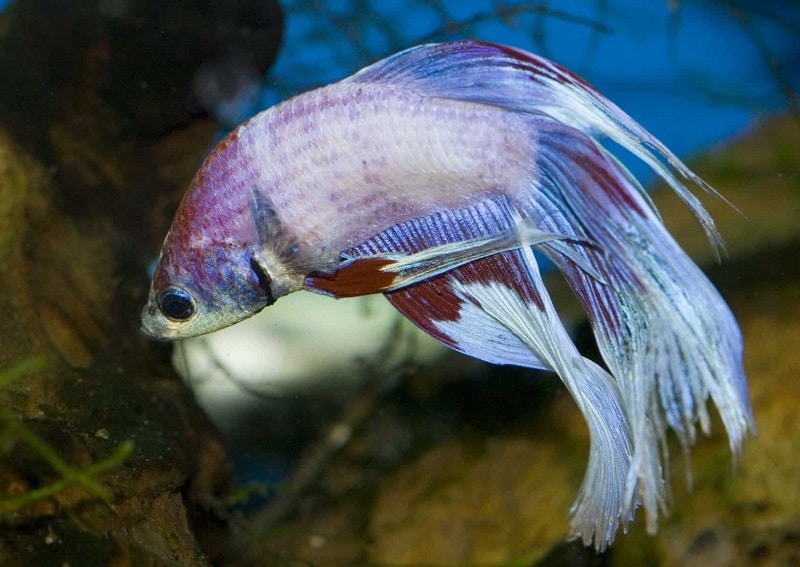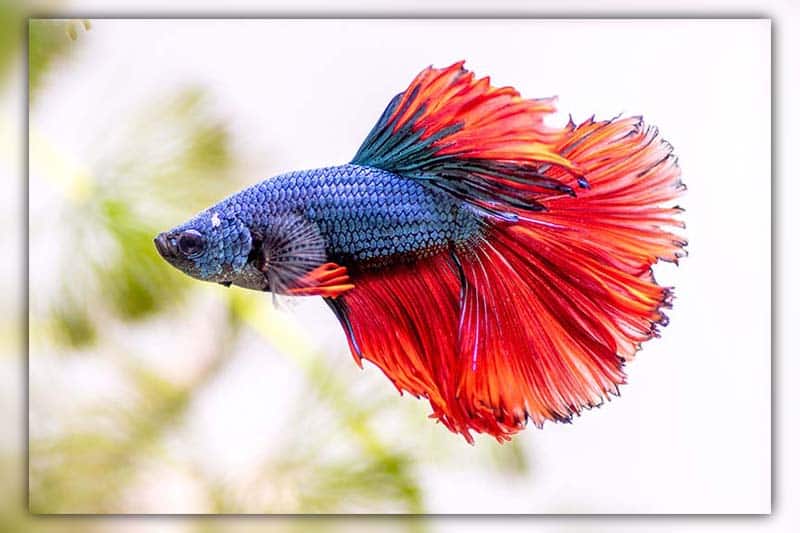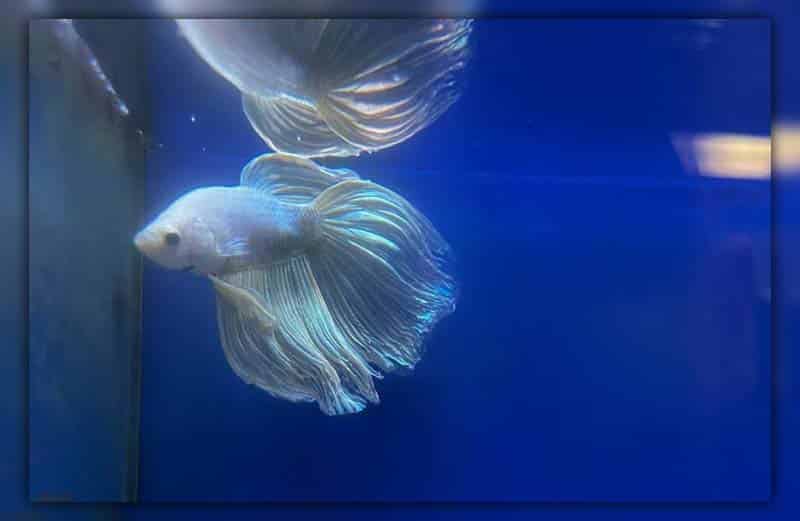Is your betta fish not as lively as before? Does he seem to be sad and listless instead of swimming around his tank? You may be wondering, “why are betta fish unhappy?”
This article will tell you everything you need to know about betta depression and treatments!
Understanding Betta Fish Depression
Fish depression, though different from human depression, has some parallels. Bettas, being highly intelligent, require consistent enrichment and a stress-free habitat.
For Ex: Betta when introduced to a new tank, may display behaviors akin to human depression symptoms: a disinterest in food, social interaction, and general lethargy.

Such behavior is indicative of an unsuitable environment or the presence of incompatible tankmates. Sudden or prolonged stressors can result in depression for these delicate creatures.
It’s essential to note that betta fish indeed have feelings. They possess personalities, and when their environment is unbalanced, they can feel sadness or distress. The confined nature of an aquarium means that they rely heavily on the owner to ensure their environment is ideal.
The Main Causes of Depressed in Bettas
- Limited Space: Impulsive purchases often lead to bettas living in small containers like bowls or vases, which can be immediate stressors.
- Poor Water Quality: Small containers often lack filtration, leading to high levels of ammonia, nitrite, and nitrates, which are detrimental to the betta’s health.
- Unstimulating Environment: A lack of live plants, hiding places, and other decorations results in a bored betta that doesn’t display typical behaviors.
How to Tell If Your Betta Fish is Unhappy?
To ascertain the mental well-being of your betta, look out for:
- Reduced activity or complete stillness
- Diminished color vibrancy
- Tattered fins and black marks
- Aggression or withdrawal
- Disinterest in food or typical behaviors
- Lowered immunity, leading to frequent illnesses

Depression Betta: Treatments
To uplift your depressed betta fish’s spirits and alleviate depressive symptoms:
- Adequate Space: Ensure they have a spacious tank, ideally a minimum of 5 gallons, free from spherical distortions like in bowls.
- Natural Environment: Incorporate live plants and avoid plastic ones, creating a more natural habitat for exploration.
- Proper Filtration: Maintain good water quality with a filter, ensuring a gentle current that won’t overwhelm your betta.
- Oxygenation: Despite their unique labyrinth organ, bettas benefit from oxygenated water. Using an airstone can be beneficial.
- Mental Stimulation: Introduce items like floating logs, hammocks, and occasionally a mirror for short periods, to engage their attention.
- Companionship: While bettas prefer solitude, compatible tankmates like neon tetras or bristlenose plecos can provide occasional company.
- Varied Diet: Spice up their diet with live foods to maintain interest.
Learn about:
- How to play with beta fish (7 steps guide to train your betta)
- How to make a betta fish happy “6 enrichment ideas”
A content betta exhibits vibrant colors, is curious about its environment, interacts with other fish and owners, and displays smooth swimming patterns.

Final Words
In conclusion, understanding and addressing the emotional well-being of your betta fish is a crucial aspect of responsible ownership. By recognizing the signs of unhappy betta fish, identifying potential causes, and implementing practical solutions, you can ensure your aquatic companion leads a fulfilling and joyful life.
Remember, a content betta fish is a healthier betta fish, and your efforts in creating an enriching environment will be rewarded with their vibrant colors and active behaviors.
explore our other blogs here at National Park Aquarium blog for more insightful tips, guidance, and expert advice on creating harmonious aquatic habitats.




